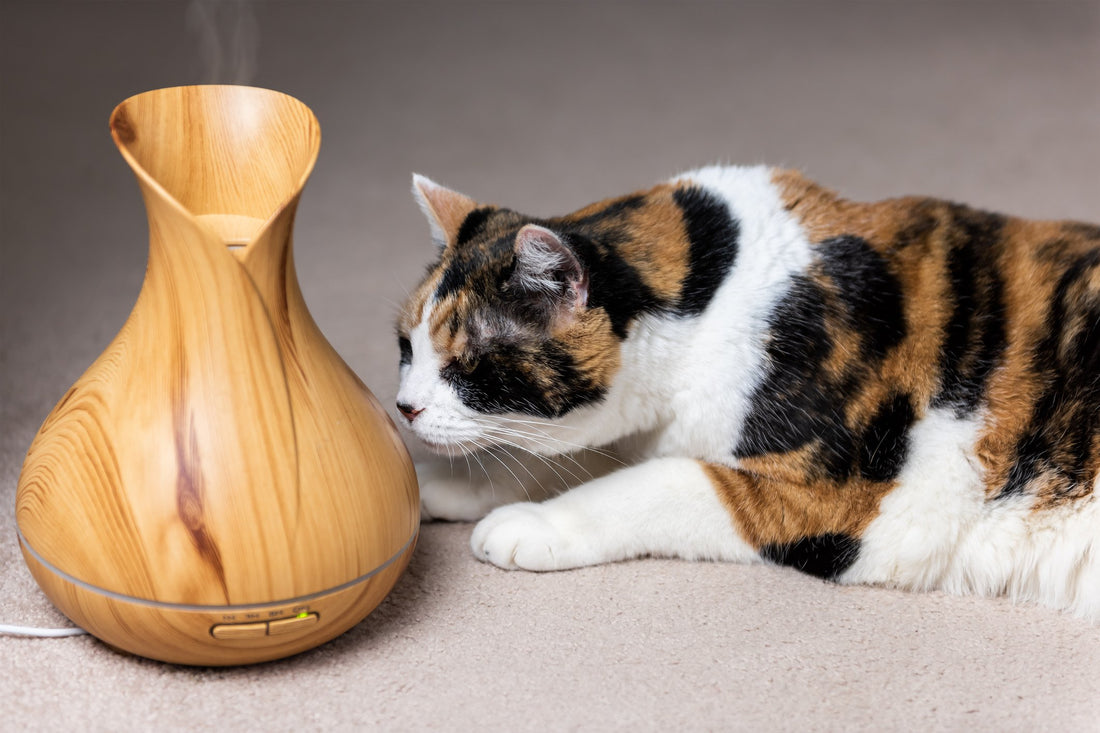
Be Cautious of Using These Essential Oils If You Have Pets!
Essential oils have become extremely popular in recent years, with more and more people investing in oil rollerball applicators and essential oil diffusers to assist with a wide variety of ailments, clean their houses, help with stress relief and more. Essential oils are a popular component of holistic medicine.
Unfortunately, while essential oils may provide health benefits to you and your children, they could potentially be dangerous for other members of your family: your pets. Essential oils are made from natural ingredients, but that doesn’t mean they are completely safe.
It’s extremely important to know which essential oils are pet-safe and which could make your cat or dog very sick so you don’t accidentally poison your pet. Additionally, proper direction from a veterinarian is imperative so you don’t irritate your pet’s skin or lungs.
Toxic Essential Oils
Some essential oils are known to cause health problems in cats and/or dogs because of particular sensitivities the pets have to their compounds. Some can be slightly irritating, while others are very toxic and could cause a fatal reaction.
Cats tend to be more sensitive to essential oils than dogs, but both could face severe side effects if certain oils are used or if they are used incorrectly.
The following essential oils may pose a health risk to your cat or dog and should be avoided as much as possible:
- Cinnamon
- Citrus
- Pennyroyal
- Pine
- Sweet birch
- Tea tree
- Wintergreen
- Ylang ylang
- Clove
- Thyme
- Peppermint
- Eucalyptus (harmful to cats)
- Lavender (harmful to cats)
- Juniper (harmful to dogs)
- Yarrow (harmful to dogs)
Some essential oils will interact with your pet’s body differently than others. Some are known to cause liver failure, while others target other organs or bodily systems.
Essential oils can be dangerous when ingested, applied topically or inhaled through the use of a diffuser. Just because you aren’t putting oils directly on your pets doesn’t mean you can’t hurt them. Inhalation of toxic essential oils could cause difficulty breathing, watery eyes and nose, coughing and vomiting.
Also, remember that pets can smell things more intensely than humans, so diffused essential oils can be overpowering to them. Diffusers with any essential oil—not just unsafe ones—can be dangerous to pets with breathing problems, as well.
Signs of Essential Oil Poisoning
The signs of essential oil poisoning may be similar to those of normal toxic poisonings. Symptoms may include:
- Difficulty breathing
- Drooling
- Lethargy
- Vomiting
- Difficulty walking
- Tremors
If you notice your pet acting strangely after diffusing essential oils near them, applying them topically or seeing your pet ingest them, call your local pet poison control network or your veterinarian right away. Do not force your pet to throw up. Identify the essential oil you believe caused the problem and make sure to bring it with you to the vet.
Not All Essential Oils Are Harmful
Although some essential oils are toxic to cats and dogs, some may have positive health benefits, as long as they are used correctly. Research is limited on this subject, but some vets believe that using oils may have positive effects on dogs and cats.
For example, lavender may promote feelings of calm in dogs, similar to humans, particularly with anxiety related to travel or other exciting or stressful situations. Lavender oil should only be used in dogs and never used around cats.
Chamomile oil may also produce calming effects, as well as be useful for skin irritations due to its anti-inflammatory properties. Cedarwood oil may be useful as a natural pest repellent.
However, in order to potentially capitalize on the benefits of essential oils for pets, the oils must be used properly. Safe essential oils are best diffused so that their effects can be incorporated through inhalation.
Some essential oils may be applied topically—but only as directed by a vet. If you are applying essential oils topically, you must be careful. Topical essential oils have the potential to irritate your pet’s skin due to the harshness of the plant oil’s potency. You should always use a carrier oil to dilute the essential oil and follow your vet’s instructions on how much to apply and where.
Generally, pets should not be given essential oils orally.
Overall, it’s important to be extremely careful when using essential oils on your pets or within your home. Many pets have been accidentally poisoned because their owners weren’t aware that the oils they were diffusing were toxic.
Always speak to your veterinarian if you use essential oils in the home to ensure that the ones you use aren’t potentially dangerous, and be sure to inquire about which may be safe to use to ease an ailment in your pet.


